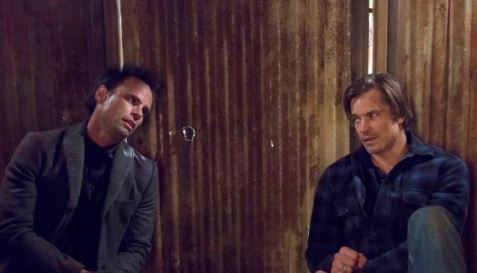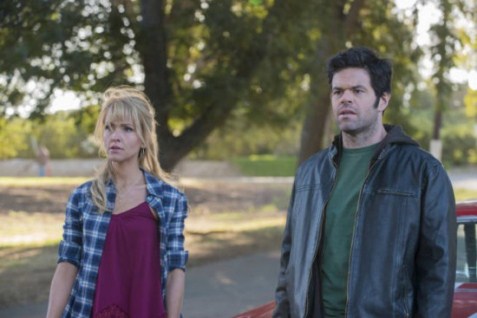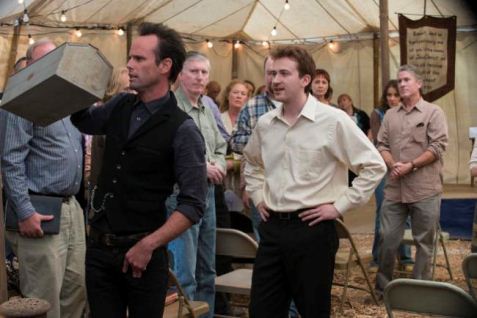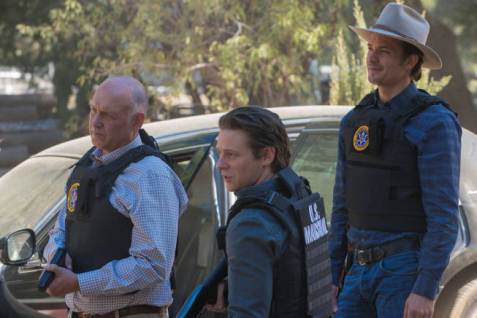SPOILER WARNING: This post will appear following a new episode of Justified. It is intended to be read after seeing the show’s latest installment as a source of recap and analysis. As such, all aspects of the series up to and including the episode discussed are fair game.
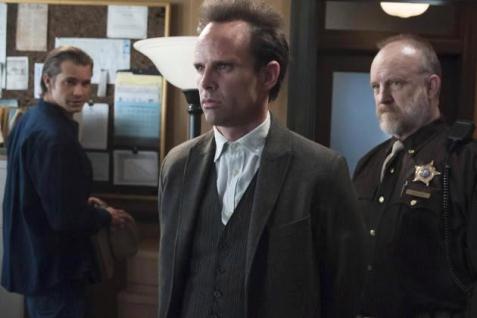
I praised last week’s episode, “Kin,” for returning to the formula most often employed when Justified is at its best: Boyd plus Raylan equals some captivating television. And while those two characters are the key ingredients, the same idea applies to the show in general—its greatest moments come from squeezing its wide array of colorful characters together and enjoying the results. All in all, “Kin” was going to be a hard act to follow, but I found this week’s offering especially disappointing because it quickly diverted away from that tried and true formula. “Foot Chase” seemed to set everyone off on their own individual adventures (and I do mean everyone). That’s not to say it wasn’t an exciting hour of television—as I’ve said repeatedly, if Boyd Crowder’s around count me in—but it certainly won’t be remembered as one of Justified’s best.
With so many characters off doing their own thing, most of the episode’s dialogue can be divided into two groups: First, conversations between members of the main cast who we see interacting all the time, and second, between a single regular and various one-off or rarely recurring characters. The one exception to this, and perhaps as a result the episode’s strongest plot line, was Raylan and Shelby joining forces in the hunt for Drew Thompson.
Early on, Raylan speaks with some local cops on the scene at Josiah Cairn’s house, and he acts like his usual jerk self. When one of them asks if there’s any particular reason he’s treating them, and I quote, “like a couple of bleached assholes,” Raylan considers it for a moment and responds, “not particularly.” We discover later that the disdain likely stems from his lack of respect for Sheriff Shelby, although I doubt Raylan is self-aware enough to make that connection himself. When Shelby asks if the reason Raylan doesn’t trust him is that he thinks he’s in Boyd’s pocket, Raylan quips back, “I think Lynyrd Skynrd’s overrated; I know you’re in Boyd’s pocket.” Shelby admits that he used Boyd to get elected, but that is allegiance is and always has been to the law. It’s interesting reversal of perspective, given that Boyd would say it was in fact he that was using Shelby.
Of course, the audience knows Shelby is done being used, because we know the details of Ellen May’s disappearance. But understandably, words aren’t enough to change Raylan’s mind. So Shelby sets out to prove it to him by putting Boyd in cuffs and bringing him in for questioning. Boyd warns him of the dangers of this decision, saying, “Son, you are turning a corner you can’t walk back around.” I found two things about that line intriguing: There’s what it says about Boyd (and Walton Goggins’ performance) that he can call Shelby “son,” in spite of their actual ages, and not sound silly. Because that’s just the kind of respect Boyd Crowder commands. And there’s the fact that Shelby, who reminds us himself that he was a supermarket greeter not too long ago, is tenacious enough to turn that corner so forcefully.
You can follow us on Twitter and Facebook for content updates. Also, sign up for our email list for weekly updates and check us out on Google+ as well.
Posted in: Television
Tags: Arlo Givens, Ava Crowder, Billy St. Cyr, Boyd Crowder, Colton Rose, Constable Bob Sweeney, Ellen May, Elmore Leonard, Erica Tazel, Jere Burns, Joelle Carter, Johnny Crowder, Justified, Justified Blog, Nate Kreichman, Rachel Brooks, Raylan Givens, Raymond J. Barry, Ron Eldard, Sheriff Shelby, Timothy Olyphant, Walton Goggins, Wynn Duffy

